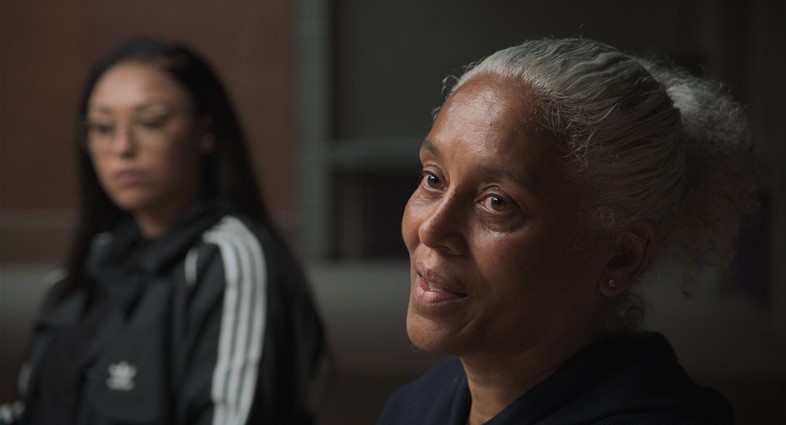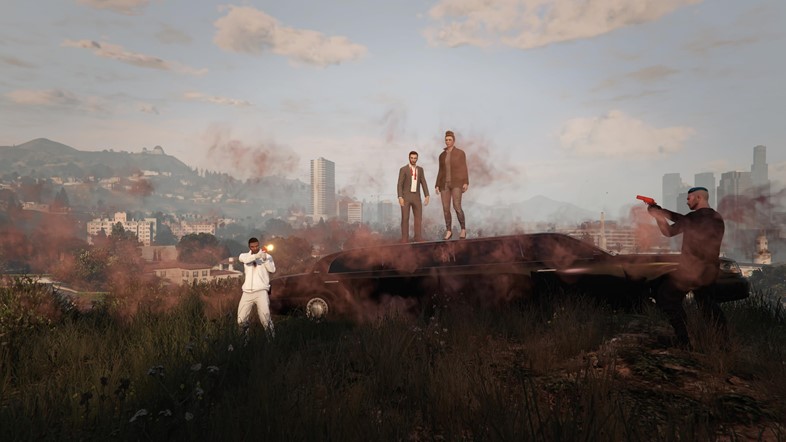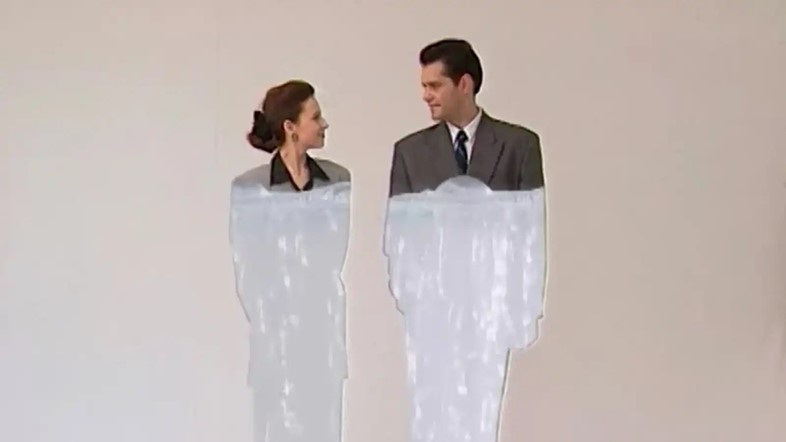This year’s event showcased a number of films reimagining the documentary format, from Wang Bing’s epic new vérité to a prismatic musical biopic of Pavement
As a film programmer with a focus on weird and wonderful documentaries, one of the main things I lament every year at the London Film Festival is how many non-fiction efforts are screened once and then disappear into the ether, never to find distribution in the UK, or at all. My particular focus is those films that experiment with the form of documentary itself, and as such, my favourites from LFF were the ones that weren’t quite as straightforward as others in the genre.
Below, find ten documentaries that pushed the form of creative non-fiction, using everything at their disposal; from video games to archival footage and Snapchat stories.
Eight Postcards From Utopia
Radu Jude’s follow-up to Do Not Expect Too Much from the End of the World is an archival collage of sorts, exploring the economic transition of Romanian culture, told exclusively through adverts broadcast on post-socialist Romanian television. Split into eight chapters, the experimental documentary chronicles the history of Romania spanning multiple decades, exploring every aspect of human existence – from the erotic and the economic to the rise of capitalism, consumerism and the promised ‘Dracula Park’ that never came to light – all in fragmented DVR quality.
Pavements
Not since Walk Hard has a parodic biopic felt such sincere affection for its chosen subject. As Pavement reunite for their delayed 30th anniversary world tour, filmmaker Alex Ross Perry indulges in a nostalgia-fest exploring fame, success and legacy that is greeted with mild bemusement by the subjects of this hybrid commemorative documentary, restaged biopic, musical theatre production and museum showcase. The ensemble features everyone who’s ever hosted a podcast – from Tim Heidecker to an unusually taciturn Griffin Newman – and, as Noah Baumbach says in a cameo, “If you want to sound cool, you talk about Pavement.”

Holloway
Holloway, a now-closed women’s prison, is revisited here through the testimony of six former inmates. The documentary, directed by Sophie Compton and Daisy-May Hudson, is essentially a filmed group therapy session, taking place in the disused grounds of the former prison, a facilitator guiding the women through various exercises as they recall a place they would much rather forget. As they reflect, laughing and weeping through the resurfaced memories, they form a new relationship to the physical space and redefine their sense of community in the process. Of particular interest is the way they engage with the form of the documentary, negotiating the presence of the cameras at emotionally climactic moments.
Motherboard
After Victoria Mapplebeck wound up a single parent in 2003, abandoned by her son’s biological father, she pivoted from a career in TV filmmaking by approaching motherhood through her smartphone camera lens instead. In a world where parents on TikTok mine their children for content and profit, Mapplebeck’s approach feels remarkably tender and sincere. From his infancy through adolescence, she encourages her son to voice his feelings for the camera, and when he arrives in surly teenager-hood, moments of high emotion – from a cancer diagnosis to arguments over dishes – are navigated with astonishing clarity.

Grand Theft Hamlet
Machinima, a genre of film set in video games, boasts some stunning avant-garde works founded on this premise. One of the greatest examples is Phil Solomon’s Rehearsals for Retirement, created in Grand Theft Auto as an elegy for his closest friend; it’s a haunting, melancholic piece. Also filmed in the game is Grand Theft Hamlet, a comedic documentary about two out-of-work theatre actors attempting to stage a production of Hamlet at the in-game stadium, and the logistical issues that ensue. It’s a more mainstream, straightforward approach to machinima that makes for an ideal introduction to the genre.
Dahomey
Chronicling the repatriation of 26 royal treasures from the Kingdom of Dahomey – now known as the Republic of Benin – Mati Diop’s breathtaking follow-up to her debut feature, Atlantics, is told from the perspective of the artefacts. At one point, the camera is even sealed inside the transport box. The film segues into an inter-generational, anti-colonial dialogue at Benin’s University of Abomey-Calavi, as students take the floor one by one to ruminate on what the repatriation of these objects – now centuries removed from their original context – mean to them, mirroring the artefacts’ own narrative voiceover as they remember their origins and question their future.
Read our interview with Mati Diop here.

Endurance
If you spent the entirety of Free Solo wondering, “What is happening in this man’s brain?”, get ready to ask that same question about the subject of Elizabeth Chai Vasarhelyi and Jimmy Chin’s latest portrait of Ernest Shackleton. An Antarctic explorer led an ill-fated expedition to find the South Pole, where his boat ended up stranded in pack ice. The modern-day element of the film, showing the rediscovery of the titular ship, is slightly less impressive than Shackleton’s original feat of survival – which involved an 800-mile lifeboat journey across the Southern Ocean – but the resulting images of the wreck are worth the perseverance.
Collective Monologue
Punctuated by extreme close-ups shot on glorious 16mm film, and long shots using CCTV footage, Collective Monologue follows the day-to-day schedule of animals and workers in an interconnected community of Argentinian zoos and animal rescue and rehabilitation centres. It’s Wiseman-esque in how it moves without narration between the various arms of the institution, from enclosure to administration. Not to pit two queens against each other, but lovers of Moo Deng may find themselves drawn to tears by the noble Juanita, an elderly monkey who is cradled by one of the workers in a heart-wrenching moment.

Youth
Wang Bing’s third part of his epic trilogy documents the precarious labour conditions of migrant textile workers in the town of Zhili. Wang adopts an unusual approach for cinema verite; keeping his handheld camera up close to the faces of his subjects, who often speak directly to him. The film follows a couple back to their hometown, a trip they can only afford to make when the film crew offers to pay their fare. Instead of a fly-on-the-wall approach, Wang Bing intervenes and even propels the narrative.
Soundtrack to a Coup d’Etat
Electrifying and jazz-like in its frenetic editing style, this musical exploration of the Congo’s torturous history with the forces of empire is best seen loud and big. It homes in on Patrice Lumumba’s role as Congo’s first prime minister after it secedes from Belgium’s colonial rule and becomes an independent state. Whether you know a lot or a little about jazz, you’ll recognise almost every name mentioned for their monumental status in the musical world, from Louis Armstrong to Nina Simone – and all of them were intertwined with this brief, intense period of political machination, the story unfolding with an unrelenting rhythmic beat.
The BFI London Film Festival ran from 9 – 20 October 2024.
